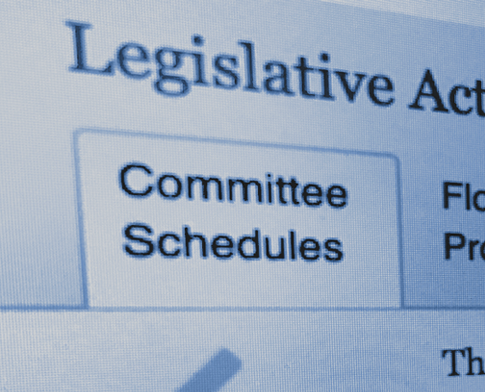Energy Update (January 10)
|
Biden-Harris Transition
This week, President-elect Joe Biden announced the following nominees and appointees:
Merrick Garland, Attorney General
Gina Raimondo, Secretary of Commerce
Marty Walsh, Secretary of Labor
Don Graves, Deputy Secretary of Commerce
Isabel Guzman, Small Business Administrator
Merrick Garland, nominee for Attorney General, has served as a judge on the United States Court of Appeals for the District of Columbia Circuit since 1997. In 2013, he ascended to Chief Judge, a role he held from 2013 – 2020. In February 2020, he stepped down as Chief Judge, but still remains on the court. Garland was nominated by former President Obama to serve on the Supreme Court, but the nomination was blocked by Senate Republicans.
Garland will likely lead the Justice Department’s (DOJ) efforts to prosecute companies that violate environmental protection laws under Biden’s proposed “Secure Environmental Justice and Equitable Economic Opportunity” plan. He will also be responsible for establishing an environmental and climate justice division within DOJ. Additionally, Garland would also oversee the implementation of the Environmental Justice Act of 2019, a bill that would strengthen legal protections for those who are facing environmental injustices and require federal agencies to take actions to mitigate environmental injustice. Biden plans to implement this legislation via executive action if it does not pass Congress.
Congress
COVID Relief/Omnibus
On Dec. 21, the House and Senate passed FY 2021 appropriations and COVID-19 relief. Initially, President Trump threatened to veto the legislation and argued the direct payments should have been increased from $600 to $2,000. He eventually signed it into law on Dec. 27 before the government was set to shutdown.
The bipartisan legislation expanded tax incentives for offshore wind, waste heat to power property, and biomass stoves. Additionally, the bill extended the solar power tax credit and the production tax credit for wind powered projects.[1]
The bill also authorizes roughly $35 billion in energy-related research and development spending over the next five years. This would include billions of dollars for energy storage, solar and nuclear technologies, carbon capture technologies, and advanced nuclear reactors.[2]
Notably, the legislation also included a provision that would require the Environmental Protection Agency (EPA) to oversee a 30 percent reduction of hydrofluorocarbons (HFCs) by 2033.[3]
Language from the Water Resources Development Act (WRDA) of 2020 was also included in the omnibus package. WRDA has previously passed the House, and the compromise legislation would authorize the construction of 46 Army Corps of Engineers (Corps) Chief’s Reports, which have been pending since the enactment of WRDA in 2018. Additionally, it would authorize 27 feasibility studies for water resources development projects and direct the Corps to complete six comprehensive river basin studies.
GA Special Elections
This week, the Associated Press announced Reverend Raphael Warnock (D) and Jon Ossoff (D) defeated incumbent Senators Kelly Loeffler (R) and David Perdue (R). The makeup of the Senate will be a 50-50 split, with Vice President-elect Kamala Harris breaking any ties. For the first time since 2001, Senate leaders will need to reach a power-sharing agreement. Although Democrats majorities in the Senate and House will be slim, they will soon control all three branches of government.
Democratic majorities in the House and Senate could help Biden enact his $2 trillion climate plan. During the campaign, Biden called for carbon neutrality by 2050, increased clean energy investments, and the decarbonization of the U.S. electric grid by 2035. Additionally, a Democratic majority in the Senate will help ensure Biden is able to confirm his Cabinet nominees.
However, Democrats will have to rely on moderate Senators Joe Manchin (D-WV), Kyrsten Sinema (D-AZ), and potentially others to approve various legislative priorities.
To view the 2001-2003 Senate power-sharing agreement, click here.
To view President-elect Biden’s climate priorities, click here.
House
This week, House Speaker Nancy Pelosi (D-CA) announced committee assignments for the 117th Congress.
To view the new assignments, click here.
On Thursday (Jan. 7), the House Oversight Subcommittee on Environment released their findings and recommendations for the 117th Congress.
The report urged lawmakers and the Biden administration to invest in an infrastructure system “that prioritizes emission reductions and resilience and includes transit and multi-modal transportation, clean energy innovation and deployment, and clean buildings.”
Democratic Members of Congress criticized the Trump administration’s “anti-climate actions” and said the U.S. had abandoned its global leadership role on climate change. Additionally, various House Democrats hoped the Biden administration would develop a science-based social cost of carbon in federal decision making and regulatory actions.
To view the report, click here.
Impeachment
Following civil unrest this week, House Speaker Nancy Pelosi (D-CA) has indicated she may bring back the chamber to begin formal impeachment proceedings. Senate Minority Leader Chuck Schumer (D-NY) has also called for President Trump to be impeached.
“If the President does not leave office imminently and willingly, the Congress will proceed with our action,” Pelosi said in a statement released Friday (Jan. 8).
Congress is not currently scheduled to return until after Biden’s inauguration on Jan. 20.
While impeachment and removal are possible, there are only 12 days left until inauguration (as of Friday, Jan. 8).
Additionally, Democratic lawmakers and one House Republican called on Vice President Pence to invoke the 25th Amendment and remove President Trump from office. Despite this, Pence has reportedly rejected these calls.
Legislation
On Wednesday (Jan. 6), Rep. August Pfluger (R-TX) introduced a bill to prohibit the Secretaries of Interior and Agriculture from issuing moratoriums on new oil and gas leases and drill permits on federal lands. The legislation, H.R. 218, was referred to the Natural Resources and Agriculture committees.
“President-Elect Joe Biden campaigned on the promise to shut down drilling on all federal lands and phase out fossil fuels. This, in conjunction with ludicrous policies like the Green New Deal, could mean the end to our oil and gas industry and the American economy as we know it,” Pfluger said in a statement.
“The Permian Basin produces over 40% of our nation’s energy. This is clean, affordable, reliable energy that powers our nation, heats our homes, and allows us to defend ourselves. Energy security is national security, and nothing could be more important,” he added.[4]
To view the legislation, click here.
This week, Rep. Bobby Rush (D-IL) introduced legislation to increase minorities, women, and veterans within the Department of Energy (DOE). The bill would direct DOE to prioritize educating and training members of underserved communities by awarding them grants.[5]
The bill, H.R. 156, the “Blue Collar to Green Collar Jobs Development Act of 2021” was referred to the committees on Energy and Education and Labor.
“Congress has a responsibility to deliver a robust and equitable recovery, and I will work diligently to ensure that is the case,” Rush said.
To view the legislation, click here.
This week, House Democrats voted to eliminate certain budget limitations for COVID-19 and climate change related legislation. In the House approved rules package, Congress waived pay-as-you-go or “PAYGO” restrictions for COVID-19 and climate change bills. The exemption will allow Democrats to introduce legislation to the floor without the risk of facing votes on corresponding tax increases, spending cuts, or an “emergency” exemption from budget limits.
The exemptions are limited and are unlikely to have a significant impact. In response to criticism from Republicans, House Majority Leader, Steny Hoyer (D-MD) said “the assertion that the Green New Deal and Medicare for All would qualify under the exemption I think is incorrect.”
On Monday (Jan. 4), Rep. Andy Biggs (R-AZ) introduced two energy-related bills:
FERC
This week, Mark Christie was officially sworn in as the newest member of the Federal Energy Regulatory Commission (FERC). Christie gives Republicans a 3-2 majority until at least June, when Chairman Neil Chatterjee’s term ends. Biden is expected to nominate Allison Clements or Richard Glick to serve as the next chair.
ANWR
On Tuesday (Jan. 5), Judge Sharon Gleason of the U.S. District Court of Alaska sided with the Trump administration and allowed the first oil and gas leasing sale in the Arctic National Wildlife Refuge (ANWR).
However, Gleason emphasized future lawsuits could block potential projects.
“Should BLM (Bureau of Land Management) approve ground-disturbing activities at the Coastal Plain before the Court determines the merits of Plaintiffs’ challenges, Plaintiffs may seek preliminary injunctive relief related to those activities,” she wrote.
In 2017, the Trump administration lifted the oil and gas drilling ban in the ANWR. The initial sale drew a total of $14.4 million in bids, with the most significant offer from the Alaska Industrial Development and Export Authority.[6]
To view Judge Gleason’s ruling, click here.
Treasury
On Wednesday (Jan. 6), the Department of Treasury and Internal Revenue Service (IRS) issued its final rule and provided guidelines for companies that use the carbon capture and storage tax credit. The rule gives companies a pathway to use both the International Organization for Standardization (ISO) or the EPA carbon capture storage standards.
Treasury Secretary Steve Mnuchin said the rule “will provide needed clarity” and “further modernize the American energy sector, while ensuring American energy producers maintain their competitive edge around the world.”[7]
To view the rule, click here.
EPA
On Tuesday (Jan. 5), the EPA finalized a rule that will shift the agency’s regulatory requirements surrounding data disclosures. The “Strengthening Transparency in Regulatory Science” rule will require researchers to publicly disclose data involved in public health studies. Notably, the rule will apply to research that evaluates prolonged exposure to harmful or benign substances. [8]
The Trump administration has argued the rule will promote transparency in the regulatory process. However, critics argue the rule will limit the agency’s ability to conduct studies on human subjects because it would require the agency to release confidential medical data.
To view the rule, click here.
References
[1] Neal, Richard. “Continued Relief for American Workers and Families.” 21 Dec. 2020.
[2] Davenport, Coral. “Climate Change Legislation Included in Coronavirus Relief Deal.” New York Times, 23 Dec. 2020.
[3] Wolff, Eric. “HFC reductions in omnibus mark Congress’ biggest climate action.” Politico Pro, 21 Dec. 2020 https://link.edgepilot.com/s/c410054d/cAD2IgiafkS2wc-BYDi1Dw?u=https://subscriber.politicopro.com/article/2020/12/hfc-reductions-in-omnibus-mark-congress-biggest-climate-action-3985931
[4] “Congressman Pfluger introduces legislation to create safeguards for oil & gas industry” CBS 7, 7 Jan. 2021
[5] Dillon, Jeremy. “Bobby Rush reintroduces bill to boost clean energy workforce” 6 Jan. 2021
[6] Farah, Niina “Court won’t block BLM Arctic lease sale.” E & E 6 Jan. 2021
[7] Anchondo, Carlos. “Treasury issues final CCS tax credit rule.” E & E 7 Jan. 2021
[8] Eilperin, Juliet and Dennis, Brady “EPA finalizes rule to limit science behind public health safeguards.” 5 Jan. 2021 https://link.edgepilot.com/s/6788431a/1oaou0KzYUuK1N6T4F_wtQ?u=https://www.washingtonpost.com/climate-environment/2021/01/04/epa-scientific-transparency/
|
|
HOUSE.GOV
The Week Ahead
For the main events of the next week and more, go straight to the key events on the house.gov website.
SENATE.GOV
The Week Ahead
For the main events of the next week and more, go straight to the key events on the senate.gov website.


